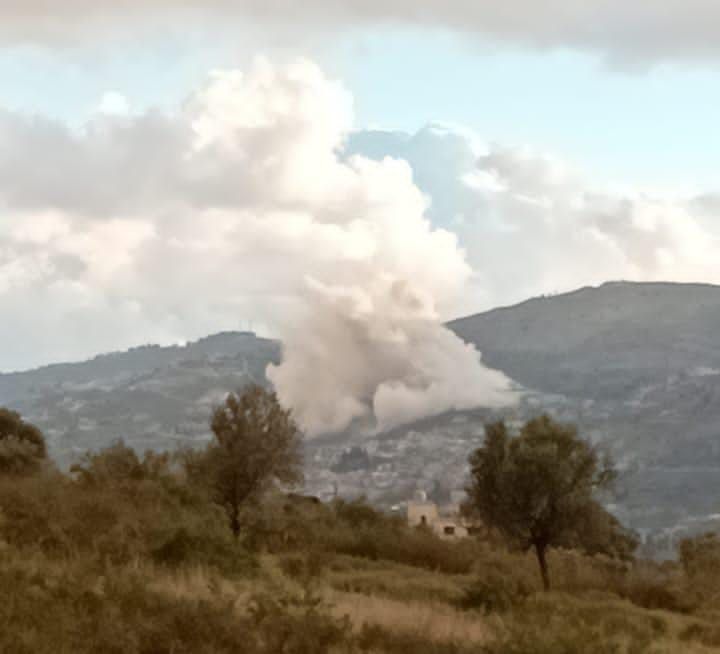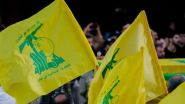
As the ceasefire draws to a close, Israeli transgressions persist in southern Lebanon, casting doubt on the imminent complete withdrawal of Israeli forces. Having completely withdrawn from nine localities, it nevertheless continues to impose restrictions on the inhabitants of border areas, and to carry out incursions into several border localities.
Israeli incursions, blasting and shooting in Southern Lebanon
Still deployed in the neighborhoods of Bani Hayyan (Marjayoun), Israeli soldiers continued to demolish homes and the village's municipal building on Friday. The Israeli army had infiltrated Bani Hayyan at midnight on Thursday, where it carried out a machine-gun sweep. Shots rang out in the vicinity, before Israeli forces set fire to several houses.
Gunfire was heard on the outskirts of Khiam, in the Bab al-Thaniyeh area, as large numbers of residents returned to inspect their homes and properties. Machine-gun fire was also fired from Hamamess hill, south of Khiam, in the direction of Sarda and Al-Amra.
On Friday morning, Israeli soldiers raided the Zouqaq area on the outskirts of Aitaroun, razing and burning several buildings. They are still positioned in this area.
The Israeli army also set fire to the housseiniya (Shiite place of worship) in Yaroun. Blasting operations were also carried out in the villages of Rab al-Thalathin, Kfar Kila and Hula.
Israel ‘Ready for Any Scenario in Lebanon’
According to Israeli media, which is anticipating “symbolic” retaliation from Hezbollah towards Mount Dov starting Sunday due to ongoing Israeli presence in the eastern sector, Israel stands prepared for any developments in Lebanon.
According to Israeli Channel 14, Israel has decided to maintain its presence in southern Lebanon, citing the Lebanese army's inability to secure the region. The Israeli military stated that it is “ready to respond decisively” to any ceasefire violations by Hezbollah and emphasized that the government has made this decision. It also warned of an immediate response to any violations by the Iran-backed group.
Similarly, the Israeli government spokesman, David Mencer, was quoted by the Ynet website as saying, “Israel is currently assessing the situation, and a complete withdrawal from southern Lebanon is unlikely. If Israeli forces remain in the region, it will be in coordination with President Donald Trump's administration.” Mencer highlighted that progress had been made, particularly with the transfer of some Hezbollah positions to the control of the Lebanese army and UNIFIL, as per the existing agreement. However, he added, “These actions have not been implemented as quickly as hoped, and much remains to be done.”
According to Al Jazeera, a United Nations source confirmed that there are no indications on the ground that Israeli forces will complete their withdrawal from southern Lebanon by Sunday, even though the 60-day deadline has passed. The source explained that the Israeli withdrawal still requires international political intervention, pointing to on-the-ground information showing Israel's intention to maintain positions in the eastern sector of southern Lebanon, despite pulling back from large parts of the western and central sectors.
Hezbollah, for its part, emphasized in a statement released on Thursday the importance of all parties pushing for the full and effective implementation of the ceasefire agreement and the complete withdrawal of Israeli forces from Lebanese territory. It also warned against any violation of Lebanon’s sovereignty, stating, “Lebanon should respond to any such violations. We will not tolerate any breach of the agreement, any failure to meet commitments, or any attempt to evade them under false pretenses.”
Lebanese authorities rejected Israel's claims that its soldiers would remain in place after the 60-day deadline. They view this extension as additional pressure on Lebanon and its people, preventing displaced residents from returning to their villages. The Lebanese government argues that this situation only exacerbates internal tensions and hinders the full implementation of the ceasefire agreement. They have also called on the United States to pressure Israel to abide by the agreement and withdraw from the occupied areas.
The Lebanese Army Intensifies Its Efforts to Dismantle Hezbollah's Facilities
Since the ceasefire began on November 27, 2024, the Lebanese army has carried out approximately 500 operations to dismantle Hezbollah's facilities in the south of the country. These efforts have included destroying infrastructure and seizing weapons. While Hezbollah has remained silent about these actions, it has not opposed the operations conducted by the Lebanese army and the UNIFIL aimed at locating and eliminating weapon sites.
Security sources have confirmed, as reported by local media, that most of Hezbollah's military infrastructure in the southern Litani region has been dismantled, in accordance with the decisions made by Lebanese authorities to implement United Nations Security Council Resolution 1701.



Comments